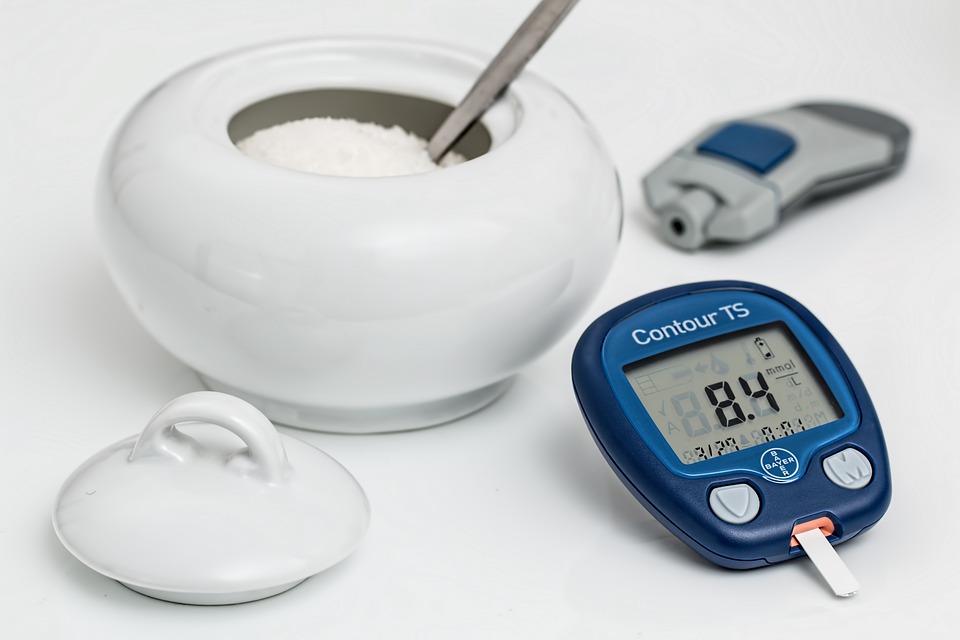Aging isn’t easy. You go through changes that affect both your body and mind, often leaving you with some serious health challenges. However, if you’re aware of the possible health issues you may encounter at your golden age, there are ways for you to prevent certain conditions, as well as to prepare yourself for others. Here are some of the most common health concerns for seniors, some prevention tips and advice on dealing with them.
 Diabetes
Diabetes
Type 2 diabetes is the most frequent type of diabetes, especially with older adults. Overweight and inactive people are at an even greater risk. It affects various parts of your body and can lead to many other serious health issues, like heart or kidney disease, stroke, blindness and circulation issues that may result in amputation. Symptoms include being tired, hungry and thirsty more than usual and losing weight without trying. Once you’ve been diagnosed with diabetes, there are ways to keep the disease under control, such as physical activity and diet, but also medicines and insulin injections. However, there are also ways to lower the risk of getting diabetes in the first place. With healthy nutrition and exercise, you will have less to worry about.
Cardiovascular disease
Cardiovascular diseases are actually diseases of heart and blood vessels. Along with stroke, they are the most common cause of death in the world. After the age of 50, you begin losing muscle mass and gaining weight, which may lead to hypertension and increase the risk of other types of heart disease. Lowering your blood pressure should be your primary concern since it then lowers the risk of stroke and heart attack. This can be achieved through medications, limited salt intake, quitting smoking, losing weight and exercising. A low-fat and high-fiber diet with vitamin and mineral supplements, along with no more than one alcoholic drink per day can reduce the risk of heart disease greatly.
 Mental health
Mental health
As you grow older, the risk of mental disorders increases, with depression being the most common one. Since it’s often a side effect of other chronic diseases, getting those diseases under control can help with depression as well. Also, support from family and friends and improving lifestyle and living conditions might help with treating depression. There are also support groups for the elderly with depression, which is important since this condition can make people care less about their overall health and sometimes even lead to suicide attempts.
Cognitive health
The ability to think, learn and remember is the basis for your cognitive health. The loss of these cognitive abilities leads to the most frequent cognitive health issue, dementia. There are several forms of dementia, Alzheimer’s disease being the most common one. Other than that, there are some chronic conditions that can lead to dementia, such as depression, hypertension, diabetes, smoking or HIV. Dementia cannot be cured, but it can be managed by taking medicaments and following a treatment plan prescribed by your physician. Also, you can find innovative aged care in places that offer modern community living for those with dementia, where they get plenty of human interaction and share a living space with like-minded people. Although there is no evidence you can prevent dementia in any way, in order to maintain your brain health, you need to stay active mentally as well as physically. Do crossword or Sudoku puzzles, read books and try having as many stimulating conversations as you can to keep your mind sharp and your mood light.
 Oral health
Oral health
As with any other part of your body, if you don’t pay enough attention to your oral hygiene, you can have serious oral health issues once you reach a certain age. Dry mouth and teeth loss are quite common with the elderly, but other, more serious issues may occur, such as gum disease or even mouth cancer. These oral health problems can lead to other health conditions, but also to low self-esteem and depression. However, with proper oral care, all of these can be managed or prevented. Brushing your teeth at least twice a day, flossing and getting regular check-ups with your dentist can be very helpful.
Arthritis
This is a disease that affects a huge part of the elderly population and can cause pain, swelling, reduced mobility and even disability. All these symptoms can make it difficult to remain physically active, but exercise is the best way to deal with them and manage the pain. Doing exercise to strengthen the joint-supporting muscles as well as losing excess weight can go a long way to manage the symptoms, so talk to your physician and make an individual activity plan you can stick to. If you feel pain when exercising, opt for a lower-intensity workout, like swimming or simply walking.
Hearing and sight impairment
With age, our middle and inner ear go through certain changes, which can cause our hearing to be diminished. Plus, if you’ve been repeatedly exposed to loud noises, the problem can be even greater. Talk to an expert, have your hearing checked and, if necessary, get a hearing aid or a cochlear implant. Similarly, problems with your eyesight can be treatable easily with glasses or contact lenses. Be sure to have regular eye exams, so that diseases like glaucoma or cataract can be diagnosed in time and controlled.
Thinking ahead today can significantly improve your health tomorrow. Proper nutrition and adequate physical activity can help you avoid some of the typical problems and conditions the elderly deal with. So, start getting rid of any bad habits you may have and form some healthy ones. You’ll thank yourself one day.
Guest Blogger
Diana Smith, she can be reached at dianasmith.dany@gmail.com or through G+

